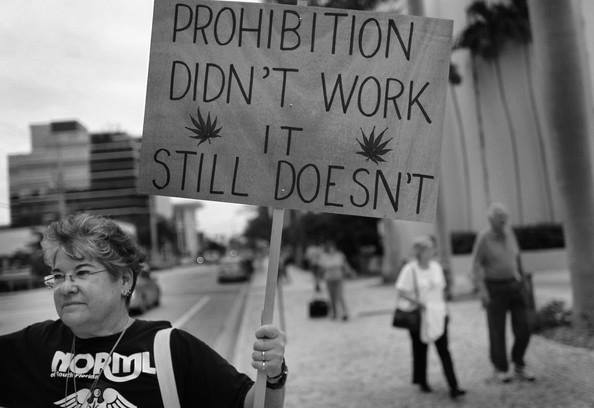The Ending of the New Prohibition on Marijuana
April Issue: Global Edition

Marijuana Prohibition
Uruguay, the first nation to fully legalize and regulate the marijuana industry, is soon to be in the company of other nations. Although the pro and anti marijuana campaigns have taken the backseat in the USA 2016 presidential campaign, it is still as current as an issue as ever in the rest of the world.
The Canadian prime minister Justin Trudeau, is now pushing to legalize marijuana, which would give its thirty three million citizens access to legal, recreational marijuana (assuming they are of legal age).
The sale of legalized marijuana is certainly an exciting business for those who work in it. These visionary entrepreneurs are not only paving the ground for the future by being the first to legally trade marijuana, but there is also a tremendous amount of profit in private industry,and tax revenue: in 2015 Colorado state packed $53 million in tax revenue into their pockets. Green for green.
New eras of progressive (or regressive) have taken towards considering legalizing cannabis. It is now being considered a way of fighting drug cartels and gangs around the world. Pro-legalization supporters argue that it can do this by essentially having the government steal the market right out from under the cartels. Here an essential dilemma of legalization: How can legislation allow marijuana companies, and the industry as a whole, to compete with cartels to knock them out of relevance but still have common sense restrictions that keep marijuana use to a minimum and discourages its use?
A critical fundamental and underlying assumption that could also likely determine the successfulness of the legal marijuana industry is the assumption that people would rather buy legal marijuana, even if it is more expensive, than illegal marijuana. There would be benefits to buying legal marijuana that go beyond the legality, but one is also getting a more safe, highly regulated, product and also can have the satisfaction of the giving of one’s money to a real business instead of a drug dealer.
Perhaps the most important policy that countries legalizing marijuana will have to write and enforce is the policy that finds the balance between allowing free market capitalism in the industry to allow for maximum profit while also preventing an uprising of of “big marijuana” like we have “big tobacco” and “big alcohol”.
A mistake that wallowed for “big marijuana” would be an irreversible disaster. One way to help avoid this is to limit the amount of lobbyists, if any, a marijuana retailer can have, or put a cap on stores a single franchise can own. These policies would be very anti-capitalistic and arguably anti-American, but I think an exception can be made considering it is a drug market and thus can, and should, be regulated heavily.
Some are calling this sprouting pro marijuana legalization movement the end of a prohibition or the end of an era of the overstepping of US government.
I believe that if legalization is not implemented correctly, then society may find themselves venturing into grounds worse than cannabis prohibition. Policy makers need to think long and hard about the new ground they may find themselves venturing into, because in the start of a new industry with such high potential for rapid growth, policies are much easier to make then reverse.


































